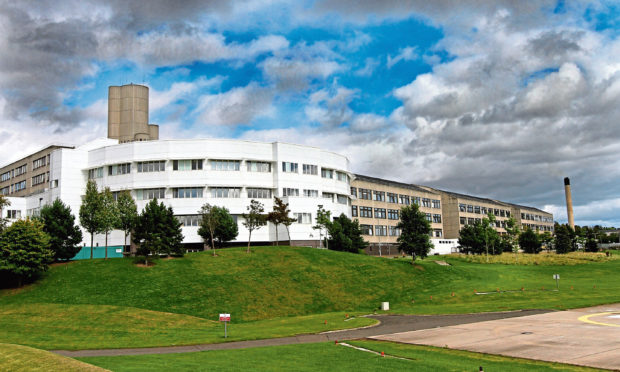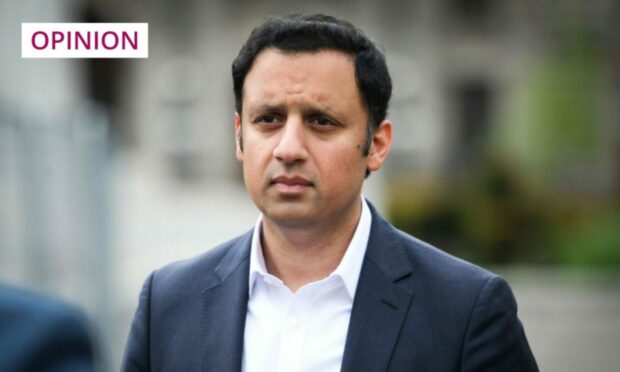Sir, – Regarding recent reports of a massive backlog of work required to the health service properties to bring them up to an acceptable standard.
I would point out the problem is not a new one.
In the late 1970s to the early 1980s the then Scottish Home and Health Department (SHHD) instructed all area health boards to carry out a survey of the condition of all the properties under their control.
The categories went from A to E, with A being new and E, I think, being in immediate danger of collapse or failure.
At the time I was with the building department based at Ninewells Hospital and was responsible for the costing of the building elements.
We were given a drawing of the hospital site with the various buildings (eg Mortuary Chapel) and blocks (eg Maternity) identified by a letter.
There was an A4 sheet for each building or block and we had to list the cost in thousands of pounds to bring each element up to Category B, which was an acceptable standard.
We were also given a list of costs and lifespan of various elements so that all surveys would be based on same costs.
We were amused that the life span of a slated roof was given as 60 years, as Dundee Royal Infirmary still had slates from the 1850s and the tenements around Dundee, built in the 1890s, still had their original slates in most cases.
However orders are orders, and we complied with the instruction, completed the forms and they were returned to the area board at Vernonholme.
This was before personal computers – we used pen, pencil and paper.
The files must have been extensive.
We had a laugh at the results as the figures were astronomical, even for those times, and we wondered what would happen to the results.
We never heard any more about the survey, and the feeling was that when it arrived at SHHD it would have been rapidly placed into a cupboard or drawer and the key then thrown away.
Nor did we get a lot more money for maintenance as a result of it.
I do still wonder what happened to that survey.
Perhaps somebody knows?
Alf Small.
8 Claypotts Terrace,
Broughty Ferry.
Mental health vs academic rigour
Sir, – Cambridge University Students’ Union, having voted in 2018 against proper recognition of Remembrance Sunday, has now voted that having military stalls at its freshers’ fair is “alarming” and could “detrimentally affect” students’ mental health.
Maybe instead, university authorities could require freshers to read Scourge of the Swastika and Knights of Bushido (as I did in my teens in the 1950s), visit Auschwitz-Birkenau and watch The Railway Man, One Day in the Life of Ivan Denisovich and an ISIL video of a decapitation or throwing homosexuals off high buildings or burning others alive in cages, to educate them in the reasons why our military are regrettably necessary, are honourable and are the real “peace activists”.
There is much to applaud about the current younger generation, but also much to despair, partly caused by university “leaders” supporting such views and indulging their advocates.
So praise be to Andrew Parker, the bursar of St John’s College, Oxford, who replied to students wanting the college to abandon its fossil fuel investments: “I am not able to arrange any divestment at short notice, but I can arrange for the gas central heating to be switched off with immediate effect.”
Inevitably, the students deemed that “inappropriate and flippant”, though it is an excellent example of forcing students to confront the complexities of the climate debate – which is exactly what universities are there for, in every discipline.
Let’s hope Mr Parker gets due support from other university staff.
John Birkett.
12 Horseleys Park,
St Andrews.
Scandal hurts our image
Sir, – What are we to make of the latest disaster to befall the SNP?
I cannot believe that no one in the party had any idea about the predilections of Derek Mackay.
He is the second senior figure to be embroiled in scandal.
How can this be good for Scotland’s image in the world?
The Scottish National Party should have been far more careful in its choices of candidacy and expertise required to convey an appropriate image of Scotland and the competence and gravitas of its politicians.
For how much longer must we suffer the embarrassment of theatrical loudmouths being substituted for truly competent and serious players?
We have yet to hear the final outcomes of the CalMac and Hospital-Construction contract awards that have cost us tens of millions in wasted money.
Will this be yet another cover-up by the SNP, or can we at last be receiving some elements of truth and transparency from SNP ministers and MPs?
Derek Farmer.
Knightsward Farm,
Anstruther.
No reason to pay TV licence fees
Sir, – There is no logical reason why the BBC has a right to seek payment from the public to allow us to watch television.
All the other providers of programmes sink or swim according their ability to make a profit.
The BBC would not be able to pay ludicrous salaries to their employees unless the items they sell achieve public support in place of fees.
Anyone who thinks it is value for money to pay an employee £1.7 million per annum to talk about football has my sympathy.
A A Bullions.
6 Glencairn Crescent.
Leven,
Fife.
Sceptical about batteries vs oil
Sir, – So the government wants to bring forward its plan to ban the sale of new diesel, petrol and hybrid cars by five years to 2035.
These people are either taking the public for fools or are scientifically illiterate.
There are many inconvenient truths about batteries, as US physicist Mark Mills wrote in July.
A 10,000% growth in the number of electric vehicles globally would reduce oil consumption by only 5%.
Batteries built annually by the world’s biggest battery factory can store just three minutes of annual US energy demand.
One pound weight of oil has the energy equivalent of 60 pounds weight of batteries.
To fabricate one pound of battery, 100 pounds of material have to be mined, moved and processed.
The proponents of this lunacy always claim “they’re developing new batteries”.
I’m highly sceptical of anything that’s “just around the corner”.
Geoff Moore.
Braeface Park,
Alness,
Highland.
NHS now officially a joke
Sir, – When I read the Royal Hospital for Children and Young People in Edinburgh had monthly staff costs of £140,000 but no patients, I was reminded of the episode of Yes Minister where an award-winning hospital had no patients either. Can we look forward to the Scottish Government also giving this hospital the Florence Nightingale award for efficiency?
Mac Roberts.
Inchture Station,
Perthshire.









